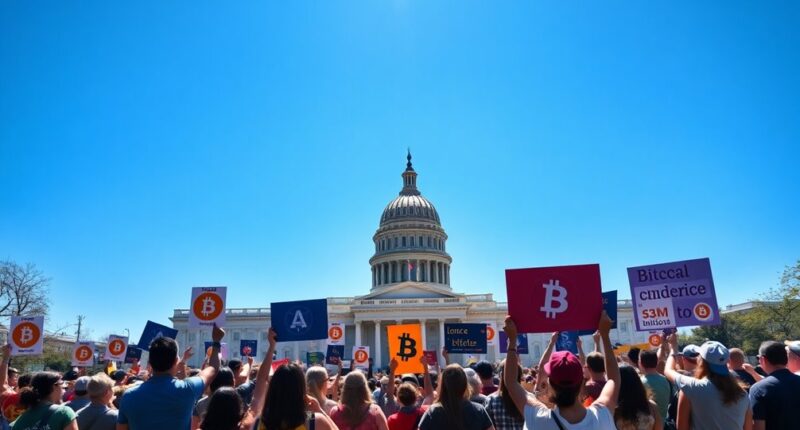As states like Florida and Arizona push forward with Bitcoin initiatives, you might wonder how these efforts are reshaping public finance. With at least 18 states actively exploring legislation, the gap between state and federal approaches to digital assets is widening. This shift not only empowers local treasurers but also raises questions about the future of federal policy. What implications could this have for the broader financial landscape?

As states increasingly recognize the potential of Bitcoin, at least 18 are diving into initiatives that explore its integration into public investment strategies. You might be surprised by how many states are eager to embrace this digital currency, with some even pushing for state-backed Bitcoin holdings. Legislative proposals are cropping up in states like Florida, Arizona, North Carolina, and South Dakota, all aiming to establish Bitcoin reserves.
This trend isn't just about following the latest financial fad; it's a competitive race among states to be the first to incorporate Bitcoin into their public investment strategies. State-backed Bitcoin reserves could potentially transform how public investments are approached across the nation.
With states like Texas and Florida leading the charge by implementing clearer regulatory frameworks, you're witnessing a significant shift in how cryptocurrencies are viewed and handled. They've made legislative changes that provide legal clarity, which is crucial for fostering a supportive environment for blockchain businesses.
Despite federal challenges, state-level efforts show no signs of slowing down. There's a growing optimism that a new administration could further propel these initiatives forward.
Bills like Arizona's Strategic Bitcoin Reserve Act aim to empower state agencies to securely store Bitcoin in designated reserves. You'll also notice proposals that involve allocating pension funds to purchase Bitcoins, such as Florida's ambitious plan to allocate $1.16 billion.
However, it's essential to tread carefully; experts caution that large state investments in Bitcoin could carry substantial financial risks due to its notorious volatility.
States are also leaning into model legislation promoted by organizations like the Satoshi Action Fund, which advocates for the establishment of Bitcoin reserves across multiple states. Often, these proposals grant state treasurers the authority to invest in Bitcoin using uncommitted funds, a move that could significantly alter the landscape of public finance.
While Bitcoin investments can potentially yield rewarding returns, you need to be aware of the risks involved, especially if states find themselves in a position where they must sell at low prices to meet budget needs.
This competitive advantage could mean a lot for states willing to take the plunge early on. As state initiatives unfold, they could influence federal policies, creating a ripple effect that fosters a more welcoming environment for digital assets nationwide.
In this race, states are clearly outpacing Washington, leaving federal efforts struggling to keep up.









